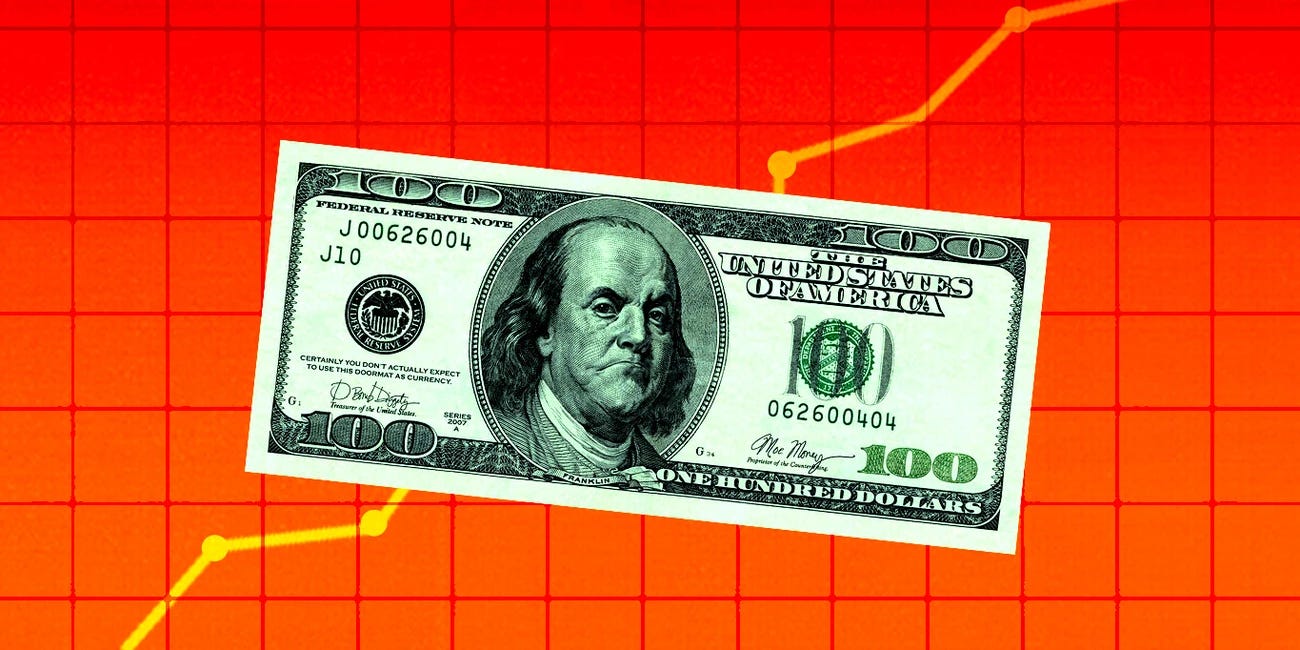What's The Big Deal With Inflation?
Uncovering the public's visceral aversion to rising prices and the disconnect with economists' perspectives on the matter
The Story:
The economic conditions of the late 1990s and early 2024 bear striking similarities, raising the question of whether history might be repeating itself. The late 1990s were marked by a period of prosperity, with low unemployment, rapid economic growth, and low inflation, though this was tempered by the irrational exuberance of the dot-com bubble.
Today, the economy once again exhibits signs of strength, with unemployment rates even lower than they were in the late 1990s. Inflation, though high in 2021 and 2022, has since come down significantly, and the Federal Reserve Bank of New York's measure of underlying inflation suggests it is now only slightly above the 2% target.
However, the pain of high mortgage rates is being felt by many would-be home buyers, reminiscent of the high interest rates experienced in the late 1990s. The reasons behind the high interest rates in the late 1990s stemmed from strong demand for investable funds, driven by a rapidly growing working-age population and a surge in business investment, particularly in the telecommunications sector.
While these conditions seemed unlikely to re-emerge, recent developments suggest a possible reversal. Immigration is surging, transforming the demographic outlook, and investment demand remains strong, particularly in the manufacturing sector, driven by the Biden administration's climate policies.
As for inflation, while economists view it as a manageable by-product of a strong labor market, many Americans see it as a moral issue. They believe that inflation inevitably reduces real incomes, making life more unaffordable and forcing them to worry about affording basic necessities.
Respondents to a survey by French Economist, Stantcheva, of Harvard University saw inflation as a sign of an economy in "poor state" rather than a booming one, and a third of the respondents prioritized reducing inflation over financial stability, unemployment, or growth. This sentiment reflects the concept of the "moral economy" proposed by E.P. Thompson, where people believe prices should be "fair" and not driven solely by the amoral logic of supply and demand.
Many Americans see inflation as something inflicted on them by businesses and the government, rather than a natural consequence of economic forces. They attribute wage increases to their own hard work, rather than acknowledging the role of a strong labor market.
The View:
The similarities between the economic conditions of the late 1990s and early 2024 are indeed striking, and there is a strong possibility that we may be witnessing a return to a high-rate environment akin to that of the previous generation. The surge in immigration and the persistent strength of investment demand, particularly in the manufacturing sector, suggest that the factors driving high interest rates in the past could be reemerging.
However, the public's perception of inflation is perhaps the most intriguing aspect of this narrative. The vast majority of Americans see rising prices as a moral issue, rather than a natural consequence of economic forces. They believe that inflation is something imposed upon them by businesses and the government, rather than a product of the trillions of decisions made by hundreds of millions of people. This sentiment reflects a deep-seated belief in the concept of a "moral economy," where prices should be "fair" and not dictated solely by the impersonal logic of supply and demand.
The public's anger at inflation is not just about the practical difficulties it creates, but a deeper sense of injustice and a perception that those in power are exploiting the situation for their own gain. This disconnect between the public's moral outrage and the economists' more pragmatic view of inflation is a testament to the complexity of economic issues and the importance of understanding the societal context in which they operate.
Ultimately, the similarities between the late 1990s and the current economic landscape suggest that we may be in for a prolonged period of high interest rates and potentially persistent inflation. The public's reaction to these conditions, rooted in a deep-seated belief in the moral economy, will undoubtedly shape the political and economic landscape in the years to come.
TLDR:
Inflation is perceived as morally wrong by the general public, who view it as an unfair burden imposed by greedy businesses and the government.
Economists, in contrast, see inflation as a natural byproduct of a strong labor market and economic growth, with less emphasis on its moral implications.
The public's anger towards rising prices stems from a belief that it reduces real incomes, makes the basics unaffordable, and widens the gap between the rich and poor.
Respondents in surveys prioritize reducing inflation over other economic goals, even if it means sacrificing financial stability or employment.
The public's views reflect a "moral economy" mindset, where prices are expected to align with notions of fairness, rather than the amoral logic of supply and demand.
Policymakers face a challenging balancing act, as public sentiment towards inflation remains overwhelmingly negative, despite economists' arguments that it is a necessary consequence of a thriving economy.
The divergence between public perception and economic theory highlights the enduring struggle to reconcile moral intuitions with the pragmatic realities of policymaking.




